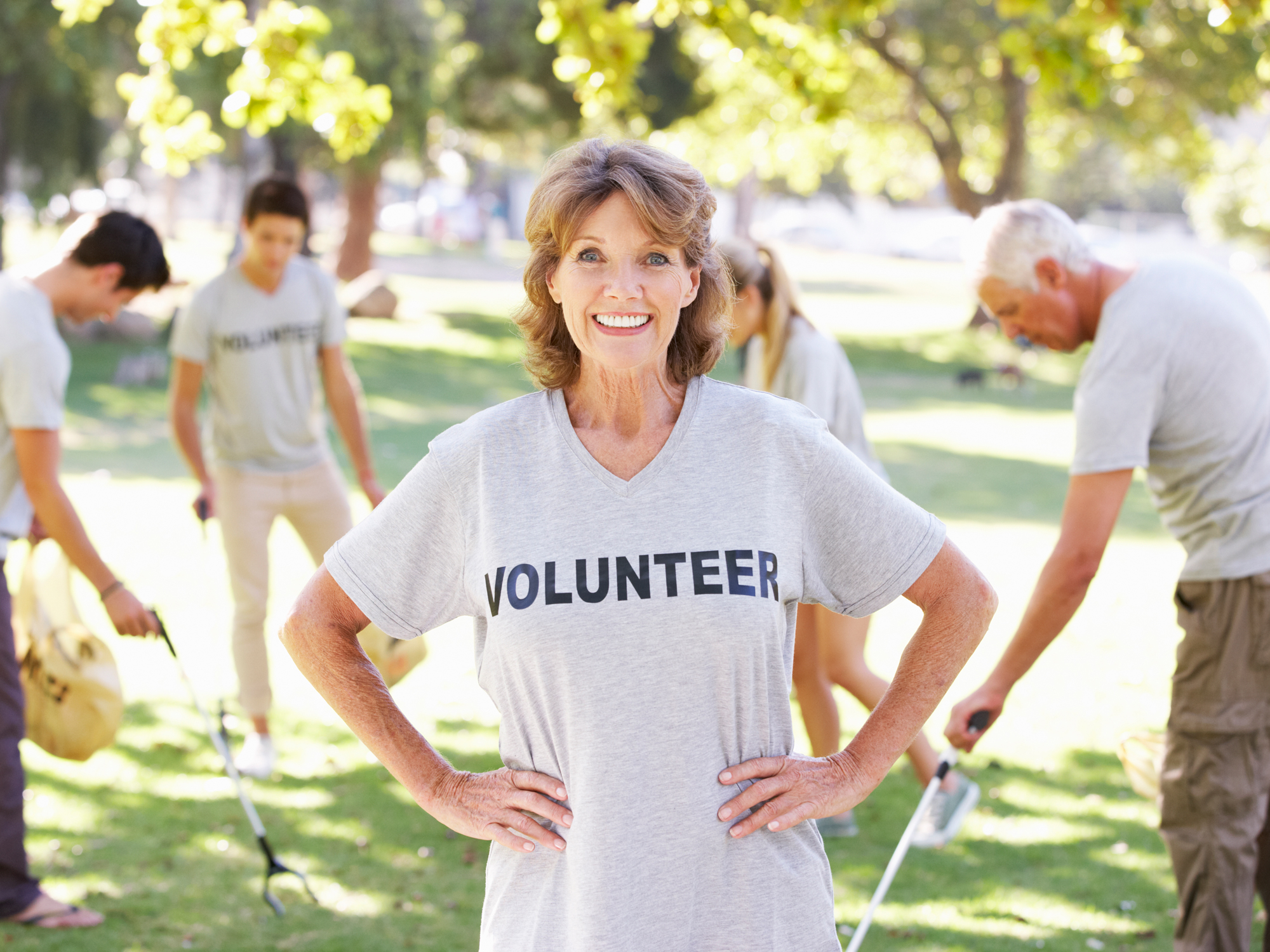Get Easy Health Digest™ in your inbox and don’t miss a thing when you subscribe today. Plus, get the free bonus report, Mother Nature’s Tips, Tricks and Remedies for Cholesterol, Blood Pressure & Blood Sugar as my way of saying welcome to the community!
‘Give back’ and feel five years younger

You already know good health requires a proper diet and plenty of exercise. But if you want to take your health from good to great, you have to look beyond the physical…
Staying psychologically-fulfilled and socially-active plays a surprisingly large role in your health. It can reduce depression, improve cognitive abilities, reduce heart disease risk and even help you live longer.
But a lot of people forget to focus on psychological and social wellness when they’re trying to get healthy. That’s a big mistake…
My colleagues, including fitness expert Debra Atkinson, have written about the role your “mind power” plays in helping you get fit and lose weight. Others have shown you can actually think yourself young, too.
And the latest study from researchers at Ghent University proves there’s something to it…
This study shows that one psychologically-fulfilling, socially-stimulating activity, in particular, can have a remarkable impact on how healthy you feel — it can even make you feel five years younger!
The activity I’m referring to is volunteering. And if you’ve never tried it, now is the time to get healthy by giving back…
Giving back for better health
In a study of more than 40,000 people, researchers from Ghent University found that people who volunteer are healthier than people who don’t. In fact, people who volunteer feel as healthy as someone five years younger than them.
That means volunteering is the equivalent of knocking five candles off your birthday cake. And who doesn’t want to do that?
Of course, this isn’t the first time scientific studies have demonstrated the health benefits of volunteering. Previous have shown that volunteering can:
- Decrease depression
- Increase your lifespan
- Make you feel more satisfied with your life
- Help you burn more calories
- Reduce your risk of high blood pressure
- Prevent or reverse age-related cognitive impairment
- Keep you from becoming frail in old age
- Improve cardiovascular health
- Reduce your risk of becoming disabled from chronic health conditions
That’s an impressive — and surprising — list of health benefits. But why is volunteering so good for your health?
Well, previous research has shown that volunteering encourages your brain to release the hormones oxytocin and progesterone, which can reduce stress and inflammation. And considering what a toll stress and inflammation take on your body, it’s no wonder volunteering can have such far-reaching health benefits.
Becoming a healthy volunteer
I know what you’re probably thinking… volunteering to improve your own health seems selfish, right?
Well, the truth is, volunteering is probably better for your health if you’re doing it because you get a sense of satisfaction from helping others rather than because it serves your own self-interest.
But if you’ve never volunteered before, who’s to say you won’t find it extremely gratifying? Most people do. You can also increase the likelihood that you’ll enjoy volunteering (and experience health benefits from it) by volunteering for a cause you care about…
If you love animals, volunteer at an animal shelter. If you love kids, volunteer at a school. If you enjoy learning from your elders, volunteer at a senior center or assisted living community. The volunteer opportunities are endless. You can even try other creative volunteering opportunities, like:
- Cooking meals for Meals on Wheels
- Becoming a docent at a museum
- Coaching a local youth sports team
- Training service dogs
- Lending a hand at a community garden
- Teaching a class at your local library or park district
- Offering your professional expertise to a local nonprofit
No matter how you decide to volunteer and no matter what your motivation for doing it, you’ll end up having a positive impact on the world and your health. And that’s never a bad thing.
Sources:
-
Volunteers are in better health than non-volunteers — MedicalXpress. Retrieved March 10, 2017.
-
Detollenaere, et al. “Volunteering, income and health.” — PLOS ONE, 2017.
-
E. Jenkinson, et al. “Is volunteering a public health intervention? A systematic review and meta-analysis of the health and survival of volunteers.” — BMC Public Health, 2013.
-
D. Anderson, et al. “The Benefits Associated With Volunteering Among Seniors: A Critical Review and Recommendations for Future Research.” — Psychological Bulletin, 2014.
-
Volunteering reduces risk of hypertension in older adults — ScienceDaily. Retrieved March 10, 2017.
-
Carlson, et al. “Evidence for Neurocognitive Plasticity in At-Risk Older Adults: The Experience Corps Program.” — The Journals of Gerontology Series A Biological Sciences and Medical Sciences, 2009; 64a (12): 1275.
-
Volunteering may prevent the elderly from becoming frail — ScienceDaily. Retrieved March 10, 2017.
-
Older Women Find Health Benefits Through Volunteering — ScienceDaily. Retrieved March 10, 2017.
-
Lennox Kail, D.C. Carr. “Successful Aging in the Context of the Disablement Process: Working and Volunteering as Moderators on the Association Between Chronic Conditions and Subsequent Functional Limitations.” — The Journals of Gerontology Series B: Psychological Sciences and Social Sciences, 2016.
-
M. C. Schreier. “Effect of Volunteering on Risk Factors for Cardiovascular Disease in Adolescents: A Randomized Controlled Trial Volunteering and Cardiovascular Disease Risks.” — JAMA Pediatrics, 2013.












